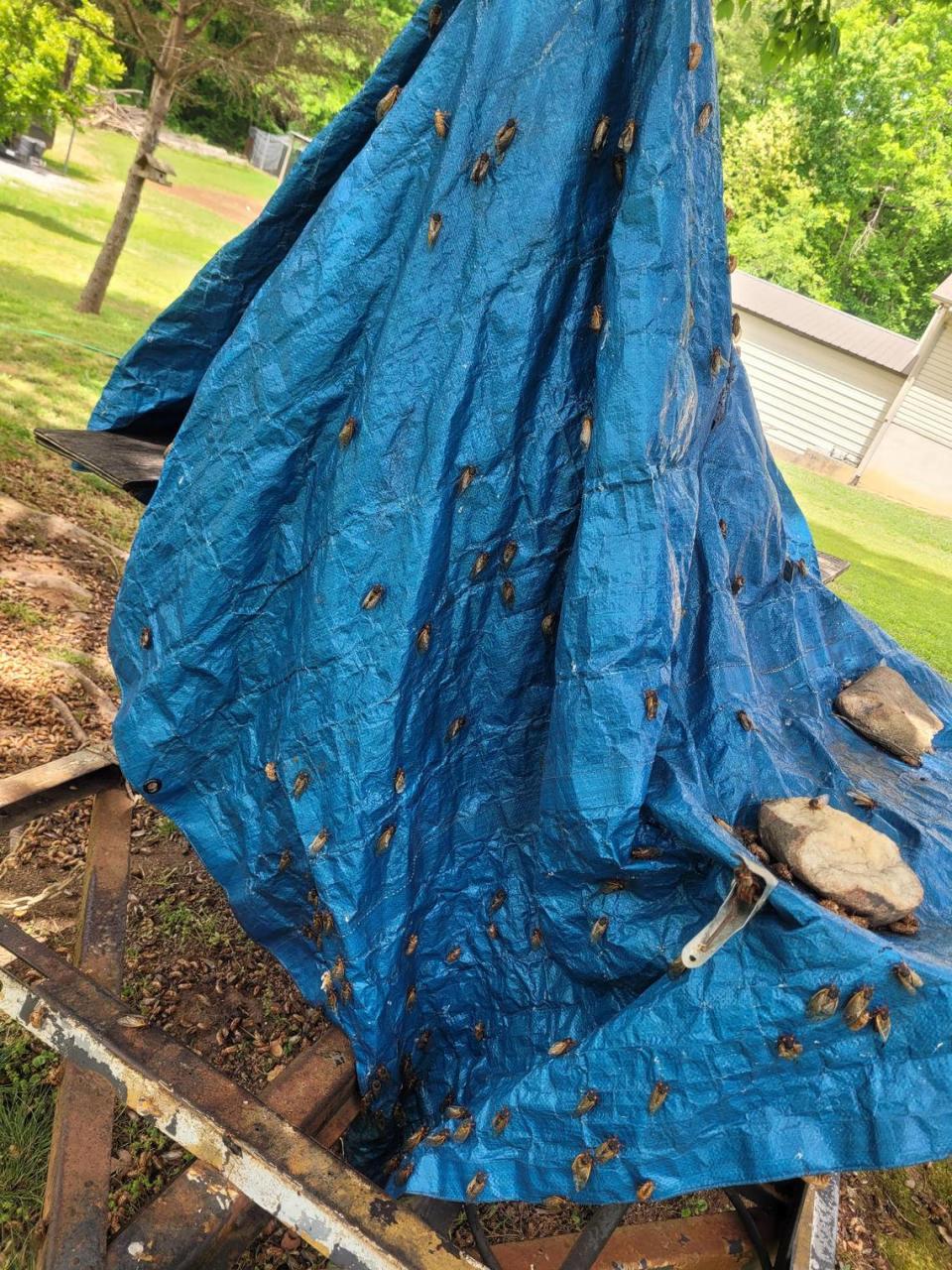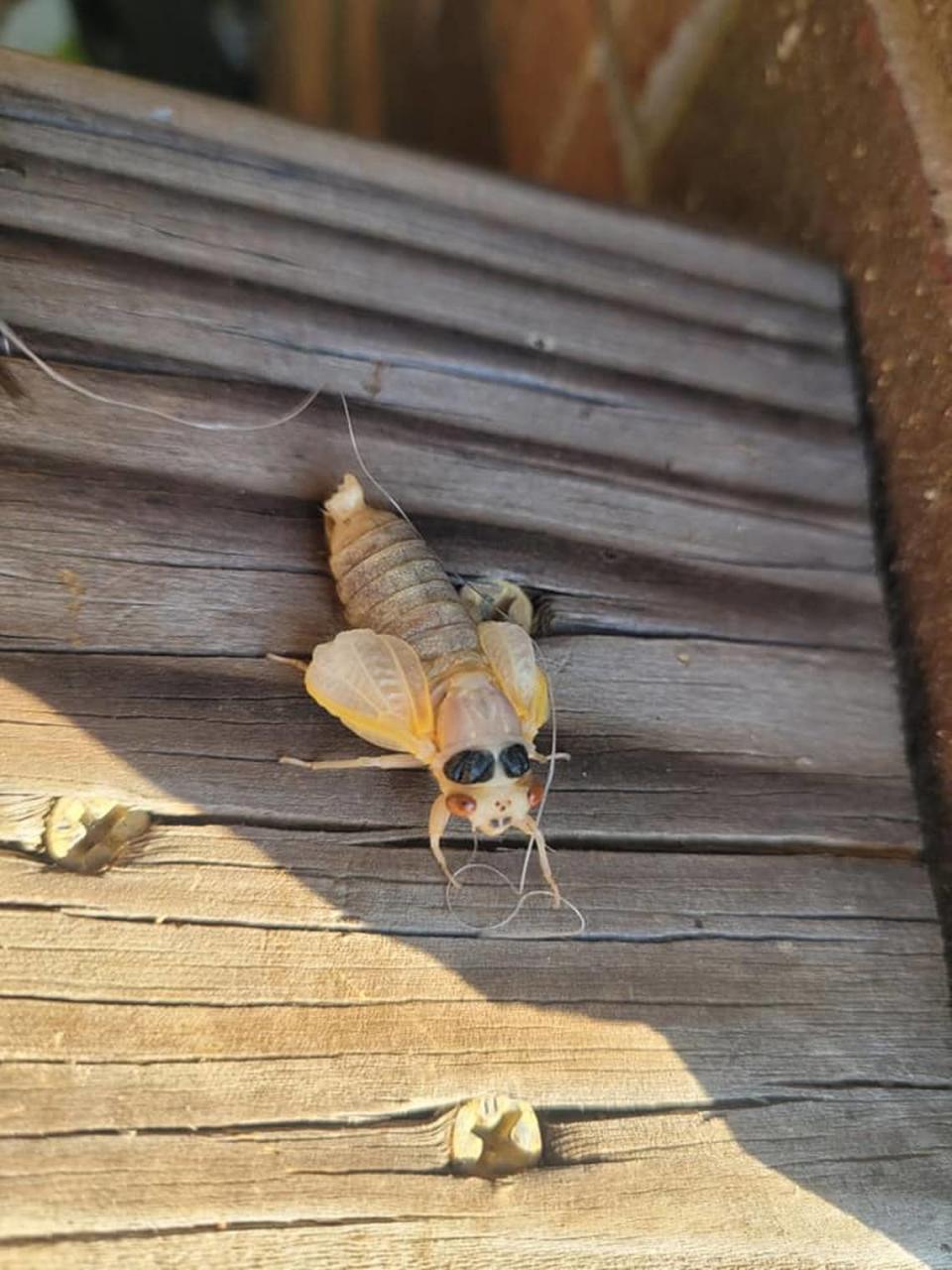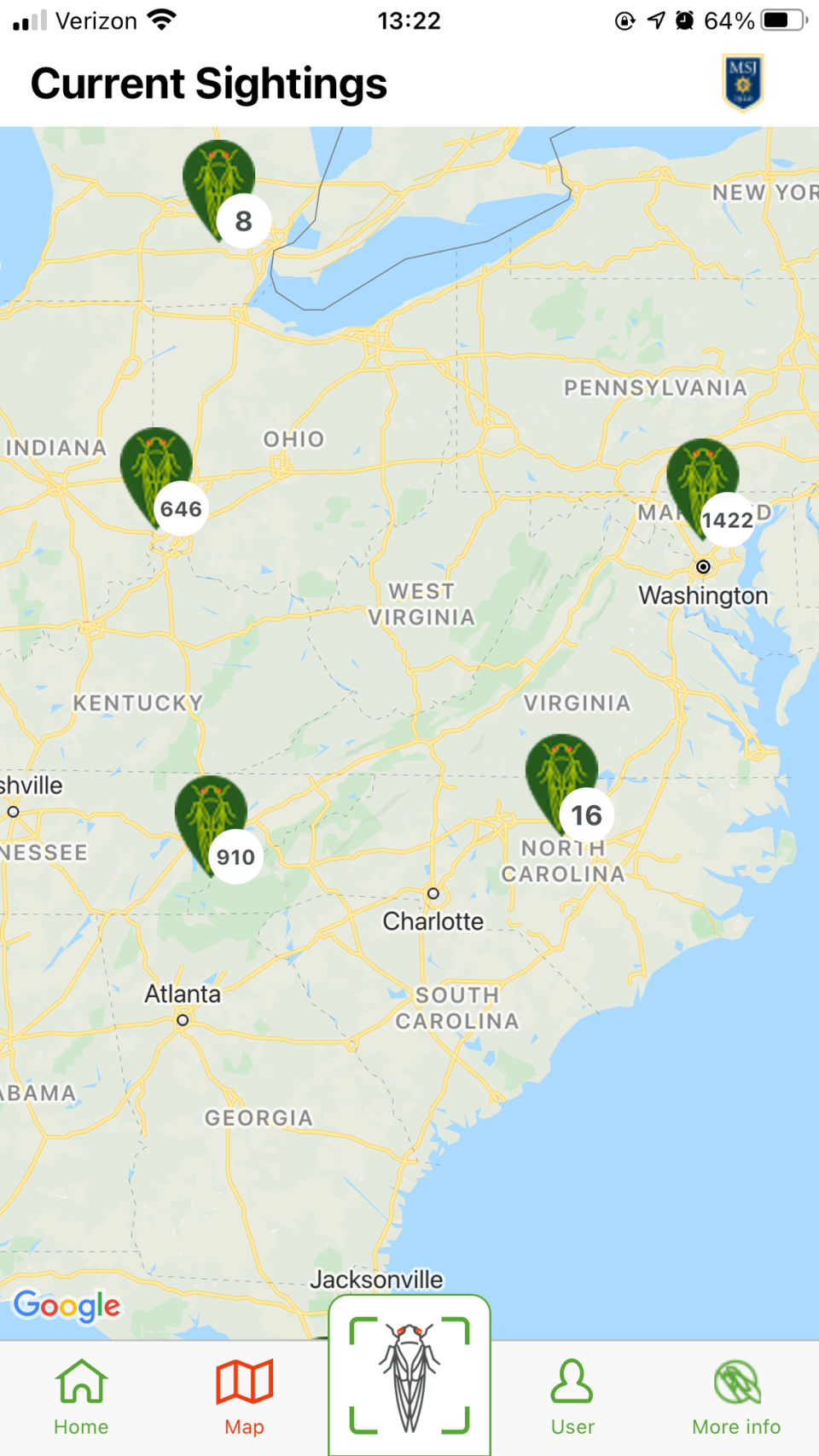‘The whole yard was full.’ Thousands of Brood X cicadas invade NC woman’s property
Every morning, Donya Broda has to sweep a litter of bugs from her front porch.
She knocks them off her plants at least three times a day, but they keep coming back. They’ve blanketed the tarp covering her husband’s smoker and the cement pillars that hold up her home’s back deck. The trunk of her maple tree has become a mass grave for their molted shells.
Sometimes it even looks like the grass is moving, individual blades sprouting feet and plodding off to a better spot in the yard.
It’s the cicadas — and they’ve waited 17 years for this glorious moment.
Brood X, a group of periodical cicadas that hasn’t been seen since 2004, is starting to emerge in parts of the Midwest and along the East Coast.
In North Carolina, experts last mapped them in Morganton and Murphy. But the list of possible counties where the brood could surface in 2021 includes Cherokee, Surry and Wilkes, in the western part of the state.

Broda lives in Wilkesboro, about 80 miles northwest of Charlotte in the foothills of North Carolina.
“You cannot walk through my yard without stepping on something — either a live one, one that just emerged from the ground, or the molted shell from one,” she told McClatchy News on Thursday, a week after the cicadas took over her yard.
Her 13-year-old daughter first spotted a few coming out of the ground in mid-April, but a sudden cold snap kept most nestled beneath the soil. As soon as the temperatures started to creep into the 60s — “Boom, the whole yard was full,” Broda said.

Broda, who is from South Dakota, said she had never heard of the 17-year brood before moving to North Carolina.
“I’ve never seen cicadas like this before, ever,” she said. “We had them in South Dakota and I loved the noise of them, but to have thousands is a little ridiculous.”
Periodical cicadas emerge once every 13 or 17 years. There are more than a dozen broods currently active in the U.S., but Brood X is one of the largest broods of 17-year cicadas by geographical range.
After spending more than a decade underground, periodical cicadas claw their way to the surface, shed their outermost skin and find a mate. The constant drone that accompanies their arrival is the males’ mating call.
“It’s really loud when you can have your doors and windows closed and still hear them in the house,” Broda said.
The adult males die after mating, and the females lay eggs in the trees. Once they hatch, the nymphs fall to the ground and burrow for the next 13 to 17 years, depending on the brood.
“This is a phenomenon that happens ... only in eastern North America,” said Clyde Sorenson, a professor of entomology at N.C. State University. “From my perspective it’s just a tremendous event that people ought to enjoy. The sounds they make, you know they can be loud. But the reason they’re making those sounds is kind of neat.”

Sorenson told McClatchy News cicadas are “about as innocuous of an animal as you can get.” They aren’t wary of humans because they don’t have to be with so many in their brood.
“They’re not going to approach people deliberately, but if you’re sitting on your bench in your backyard, it wouldn’t be too surprising if one were to land on the other end of the bench from you,” he said.
Sorenson said Thursday he expects Brood X cicadas to start emerging in the next week to 10 days — if they haven’t already.
Experts at Mount St. Joseph University in Cincinnati created an app called Cicada Safari where users can upload pictures of periodical cicadas in their area, allowing etymologists to map where certain broods are emerging in real time.
As of Thursday afternoon, the vast majority of sightings — over 1,400 — have been in Maryland, near Washington, D.C. About 900 were reported on the Tennessee-North Carolina border, including at least 80 near Wilkesboro, Boone and Blowing Rock.


Broda has lived in Wilkesboro for about three and a half years. Last year, she said, there were maybe 50 cicadas in the yard at her house. Her kids would scoop them up and carry them to the trees in the backyard.
There was some excitement when the first few cicadas from Brood X started to emerge in April. A stray cat that lingers near their house thought they were toys.
“When there were just a few I was saving them,” Broda said. “Now I’m over it.”
Her husband jokingly calls her a cicada murderer. But cicadas are pretty hard to kill, and experts don’t recommend treating them like pests.
Sorenson said people shouldn’t spray cicadas with pesticides because they are a valuable part of the ecosystem. Deer, birds, squirrels and snakes all snack on them.
“If your house is smack in the middle of a significant population, there could be hundreds of thousands or more in an acre, maybe a million in an acre,” he said. “But they’re only going to be around for a very short period of time — for three or four weeks — and then they won’t be back until 17 years passes.”
Sorenson’s advice? “I would just enjoy the show.”
How will this year’s army of Brood X cicadas affect NC? Here are tips and ... recipes
Confused cicadas are emerging 4 years early in the Southeast, scientists say
Cicadas lurking underground for 17 years will emerge on the East Coast. Here’s where

